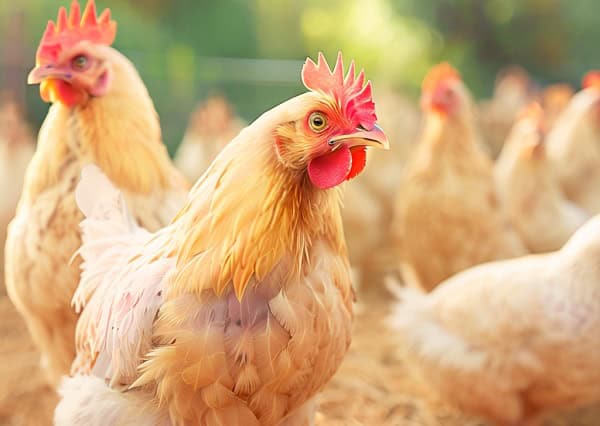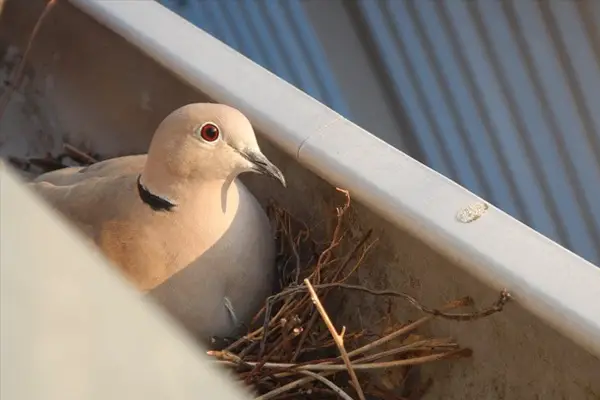How Long Do Chickens Live? Complete Guide to Chicken Lifespan
Have you ever wondered how long chickens live? If you’re raising chickens or just curious about these fascinating birds, understanding their lifespan can help you take better care of them. Chickens, like any animal, have lifespans that can vary depending on different factors. In this article, we’ll explore how long chickens typically live, what affects their lifespan, and how you can help your chickens live longer, healthier lives.
Factors Affecting Chicken Lifespan
Breed and Genetics
Not all chickens are the same; some breeds naturally live longer than others. For example, hybrid chickens like Leghorns are often bred for egg production, so they may not live as long as some heritage breeds. On the other hand, Orpingtons and Rhode Island Reds tend to have longer lifespans because they are not pushed as hard to lay eggs. The genetic makeup of your chicken plays a big role in how long it will live.
Living Conditions
Where and how your chickens live can make a huge difference in their lifespan. Chickens need enough space to roam around, a clean, dry place to sleep, and protection from harsh weather. Chickens kept in poor conditions, like dirty coops or overcrowded spaces, are more likely to get sick, which can shorten their lives. Keeping their living area clean and safe is key to helping them live longer.
Diet and Nutrition
Like people, chickens need the right food to stay healthy. A balanced diet with the right nutrients can help them grow strong and live longer. Chickens need a mix of grains, proteins, and fresh greens to stay in top shape. If a chicken doesn’t get the right food, it could develop health problems, which might shorten its life.
How Long Do Chickens Live in Captivity vs. the Wild?
Lifespan in Captivity
Chickens raised in backyards or farms can live anywhere from 6 to 10 years, depending on how well they are taken care of. With the right care, some can even live beyond 10 years! Chickens kept as pets often live longer because they receive better care, food, and protection from predators.
Lifespan in the Wild
Wild chickens, or chickens that are not protected by humans, generally don’t live as long. They face threats from predators like foxes, hawks, and other animals, and they might not find enough food or shelter. As a result, wild chickens usually live for only 2 to 3 years.
Common Health Problems That Shorten Chicken Lifespan
Diseases
Chickens, like other animals, can get sick. Some of the most common diseases include respiratory infections and Marek’s disease, which can spread quickly in a flock. If not treated, these illnesses can shorten a chicken’s life.
Parasites
Parasites like mites and worms can also cause problems for chickens. These tiny pests can weaken a chicken by feeding on their blood or stealing nutrients from their body. Regular checks and treatments can help prevent parasites from harming your chickens.
How to Increase Your Chicken’s Lifespan
Providing a Balanced Diet
To help your chickens live longer, ensure they have a balanced diet with plenty of fresh food and clean water. Treats like fruits and vegetables can add extra vitamins and minerals to their diet, keeping them healthy and strong.
Ensuring Proper Healthcare
Keeping up with vaccinations and regular health checks is important for preventing diseases. If you notice that one of your chickens looks sick, it’s best to separate it from the others to prevent the illness from spreading. Quick action can save lives!
Creating a Safe Environment
Predators are one of the biggest threats to chickens. You can protect your chickens by ensuring their coop is secure and safe from animals like raccoons and foxes. Also, keep their living area clean and free from mould or dampness to prevent health problems.
Lifespan of Different Chicken Breeds
Different breeds of chickens have different lifespans. Here are a few examples:
- Leghorns: Known for their egg-laying abilities, Leghorns typically live 4-6 years.
- Orpingtons: These friendly, fluffy chickens can live 8-10 years with good care.
- Rhode Island Reds: Hardy birds, Rhode Island Reds often live 6-8 years.
Choosing the right breed for your needs, whether for eggs or companionship, can help you plan for how long you’ll have them in your care.
How long do backyard chickens live?
Backyard chickens typically live between 5 to 10 years, but this can vary greatly based on their breed, environment, and care. Some chickens may live beyond 10 years in optimal conditions, but most backyard chickens fall within this range. Chickens raised for commercial purposes, like egg-laying, tend to have shorter lifespans, often only 2-3 years, because of the strain on their bodies.
What factors affect a chicken’s lifespan?
Several factors can influence a chicken’s lifespan:
- Diet: A well-balanced diet rich in nutrients can prolong a chicken’s life. Quality feed with the right balance of protein, calcium, and vitamins is essential.
- Living conditions: Clean, dry, and spacious housing helps prevent diseases. Overcrowding or poor sanitation can lead to illness and shorter lifespans.
- Healthcare: Routine health check-ups, vaccinations, and prompt treatment of illnesses or injuries are crucial. Parasites like mites and worms, if untreated, can drastically reduce lifespan.
- Predator protection: Predators like foxes, raccoons, and hawks are a significant threat to backyard chickens. Secure, predator-proof coops and runs can keep them safe.
- Stress: Chickens that experience less stress due to predator threats, bad weather, or poor handling are likely to live longer.
How can I make my chickens live longer?
To extend the lifespan of your chickens:
- Provide a nutritious diet with proper protein levels, calcium, and fresh vegetables or fruit as supplements. Make sure they always have access to clean, fresh water.
- Maintain a clean coop by regularly cleaning bedding and making sure it is well-ventilated but free of drafts.
- Protect your chickens from predators by ensuring they are secured in a sturdy, predator-proof coop at night and monitoring them during free-range time.
- Minimize stress by ensuring they have enough space, keeping their environment stable, and handling them gently.
- Regular vet check-ups can catch issues like infections, parasites, or deficiencies early before they become life-threatening.
Do different chicken breeds have different lifespans?
Yes, chicken breeds have varying lifespans:
- Heavy breeds like Brahmas, Orpingtons, and Plymouth Rocks tend to live shorter lives, often around 5-7 years, due to their size and weight putting extra strain on their bodies.
- Smaller or lightweight breeds like Leghorns, Silkies, and Anconas are generally more active and may live longer, sometimes up to 10 years or more.
- Heritage breeds are known for their hardiness and longer lifespans, as they haven’t been bred for rapid growth or egg production like commercial hybrids.
What is the average lifespan of a pet chicken?
Pet chickens that are well-cared for can live anywhere from 8 to 10 years and in some cases, even longer. Their lifespans tend to be longer than chickens kept in commercial settings because they aren’t pushed to lay eggs continuously or grow rapidly.
How long do free-range chickens live?
Free-range chickens tend to have lifespans of around 5 to 7 years. While they benefit from foraging for natural food and exercise, they are also more exposed to predators, weather extremes, and possibly other dangers like vehicles, which can shorten their lives compared to chickens kept in secure, enclosed areas.
Why do some chickens live longer than others?
Several reasons explain why some chickens live longer:
- Genetics: Some breeds are genetically predisposed to longer lives. Heritage breeds, for example, often outlive high-production commercial breeds.
- Care: Chickens with better healthcare, protection from predators, and superior living conditions tend to live longer.
- Diet: Proper nutrition plays a key role in extending lifespan, as chickens receiving a balanced diet are healthier.
- Stress Levels: Chickens that live in less stressful environments—free from predator threats, disease, or overcrowding—have longer lifespans.
What are the common causes of death in chickens?
Some of the most common causes of death in chickens include:
- Predation: Chickens are vulnerable to many predators, including foxes, raccoons, hawks, and neighborhood dogs.
- Illnesses and diseases: Chickens can suffer from respiratory infections, Marek’s disease, fowl cholera, and avian flu.
- Parasites: External parasites like mites and lice, and internal parasites like worms, can severely weaken chickens if untreated.
- Egg binding: This occurs when a hen is unable to pass an egg, and if not treated quickly, can be fatal.
- Reproductive issues: High-production hens can suffer from conditions like ovarian cancer, internal laying, or egg peritonitis.
How do I take care of an old chicken?
Taking care of an elderly chicken involves:
- Soft bedding: To prevent joint pain, use softer bedding materials in their coop.
- Nutrient-dense diet: Older chickens may need supplements like calcium, or vitamin-enriched feed as they stop laying eggs and age.
- Special attention: Keep a close eye on their mobility, weight, and feathers. Older chickens are more vulnerable to disease, so check for any signs of illness frequently.
- Lower roosts: As chickens age, they may struggle to hop onto higher perches, so provide lower, easily accessible roosting areas.
Can chickens live past 10 years?
Yes, chickens can live past 10 years under excellent care. While it’s uncommon, some backyard chickens, especially those kept as pets in optimal conditions, can live as long as 12-15 years. Factors like breed, genetics, and quality of care play a significant role in extending their lifespan beyond the average.
Final Words
To sum it up, chickens can live anywhere from a few years in the wild to over 10 years when properly cared for in captivity. Their breed, environment, diet, and health care all play important roles in determining how long they will live. If you’re raising chickens, taking the time to provide the right food, a safe home, and regular health checks can make a big difference in their lifespan. With love and attention, your chickens can live happy, long lives!
You may want to read more articles~
- European Bee-Eater (Merops apiaster)
- Birds With Red Chests
- African Fish Eagle: All You Need to Know
- HAWKS IN TENNESSEE
Frequently Asked Questions
Q1: How long do chickens live as pets?
Pet chickens can live 8 to 10 years or more with proper care.
Q2: How long do chickens lay eggs and live?
Chickens typically lay eggs for 2-3 years but can live for 5-10 years, depending on care and breed.
Q3: What is the lifespan of a chicken for food?
Chickens raised for meat (broilers) generally live 6-12 weeks before slaughter.
Q4: How long do free-range chickens live?
Free-range chickens live around 5-7 years, but this can vary due to environmental risks like predators.
Q5: Do chickens get attached to humans?
Yes, chickens can form bonds with humans, recognizing their owners and seeking affection.
Q6: Can a chicken survive alone?
Chickens are social animals. They can survive alone but typically thrive in a flock. If kept alone, chickens may become lonely or stressed.







